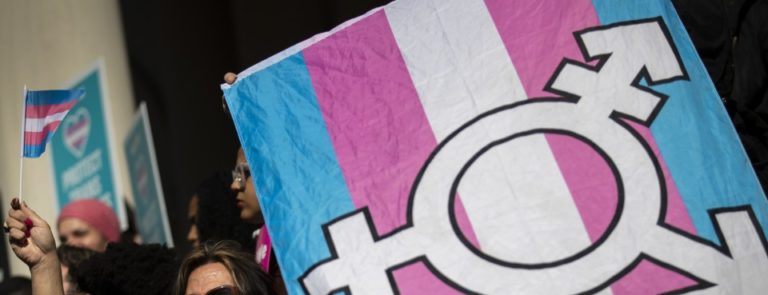

“[I]t is impossible to discriminate against a person for being…transgender without discriminating against that individual based on sex.” That strong language is central to a case decided by the U.S. Supreme Court on June 15, R.G. and G.R. Harris Funeral Homes v. Equal Employment Opportunity Commission, consolidated with Bostock v. Clayton County, Georgia.
That case held, in an employment context, that termination of a transgender employee, i.e., an employee who had transitioned away from the sex listed on the employee’s birth certificate, because the employee was transgender violated Title VII of the 1964 Civil Rights Act.
One would therefore think that that language boded well for sports-related cases involving discrimination against transgender individuals. Despite the fact that Title IX, which covers sports cases, contains language very similar to that in Title VII, it is not at all clear that the strong language in Harris Funeral Homes would be dispositive in a Title IX case.
Little Guidance for Connecticut Case
Illustrating this point is a case pending in federal court in Connecticut in which cisgender females, i.e., those who identify with the sex on their birth certificate, are suing to stop transgender females (males who have transitioned to females) from competing in high school track meets. On the question whether such an exclusion would violate Title IX, Harris Funeral Homes gives surprisingly little guidance, as detailed below.
Harris Funeral Homes turned on the interpretation of the language in Title VII that prohibits an employer from discharging any individual “because of…sex.” The court makes it clear that this language means that, if sex is even part of the reason for the discharge, the employee will prevail in court.
The court makes this determination by looking at a number of examples where, if the sex of the individual had been different, the result would have been different. If that is the case, then the termination was implemented because of sex and, therefore, prohibited by Title VII: “if changing the employee’s sex would have yielded a different choice by the employer…a statutory violation has occurred.”
This analysis gives the transgender employee a straightforward route to victory. Comparing two employees who were both female at birth, one of whom has transitioned to being a male and has been fired for that reason, the court states that “the employer intentionally penalizes a person identified as male at birth for traits or actions that it tolerates in an employee identified as female at birth.” This, the court finds, is unlawful employment discrimination because of sex.
How this analysis will apply, if at all, to Title IX, which governs most amateur sports, is unclear because of a special characteristic of sport: unlike other areas of civil rights law, there is a regulation clarifying Title IX that allows separate (but equal) teams for males and females. Separate but equal male and female teams require more analysis than is given in Harris Funeral Homes, where there were no jobs that were expressly and legally categorized male or female.
Title IX’s language is very similar to that of Title VII, stating that “No person…shall, on the basis of sex, be excluded from participation…or be subjected to discrimination…” A regulation clarifying Title IX, however, allows “separate teams for members of each sex where selection for such teams is based upon competitive skill…” The courts have upheld this exemption, which allows, for example, separate male and female track teams.
Applying the test from Harris Funeral Homes to this statute, as clarified by this regulation, is not straightforward. In Harris Funeral Homes, the Supreme Court found that, had the transgender female (male-to-female) employee been a female at birth, that person would not have been fired.
More Difficult Question: What Constitutes a Male and Female
In the sports case involving a transgender female seeking to compete as a member of the female track team, however, the question is not whether an individual can compete, because there are teams for both males and females. The question is on which of those teams one can compete.
In order to answer that question, a court will need to confront a much more difficult issue than statutory interpretation. It must determine—at least for the purpose of the male and female competitive categories for track competitions—what constitutes a male and what constitutes a female. Harris Funeral Homes gives no guidance on this point.
Indeed, not only is there a lack of guidance, but also Harris Funeral Homes decision expressly limits itself. In argument, the losing party in Harris Funeral Homes expressed the fear that a loss would “sweep beyond Title VII to other federal or state laws that prohibit sex discrimination…sex-segregated bathrooms, locker rooms, and dress codes will prove unsustainable…”
To that the Supreme Court replied that “we do not purport to address bathrooms, locker rooms, or anything else of the kind.”
Therefore, although Harris Funeral Homes was a major victory for transgender individuals, they still have a significant legal battle to fight in the field of amateur sport.
This column does not necessarily reflect the opinion of The Bureau of National Affairs, Inc. or its owners.
Author Information
Ronald S. Katz, senior counsel at GCA Law Partners LLP, is the author of “Sport, Ethics and Leadership” (Routledge, 2017). In 2016 he was a Stanford Distinguished Careers Institute Fellow.